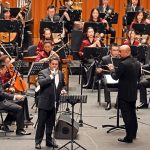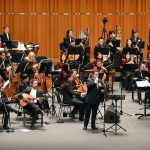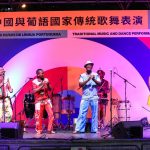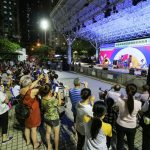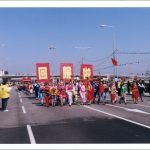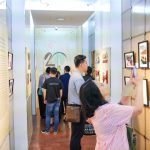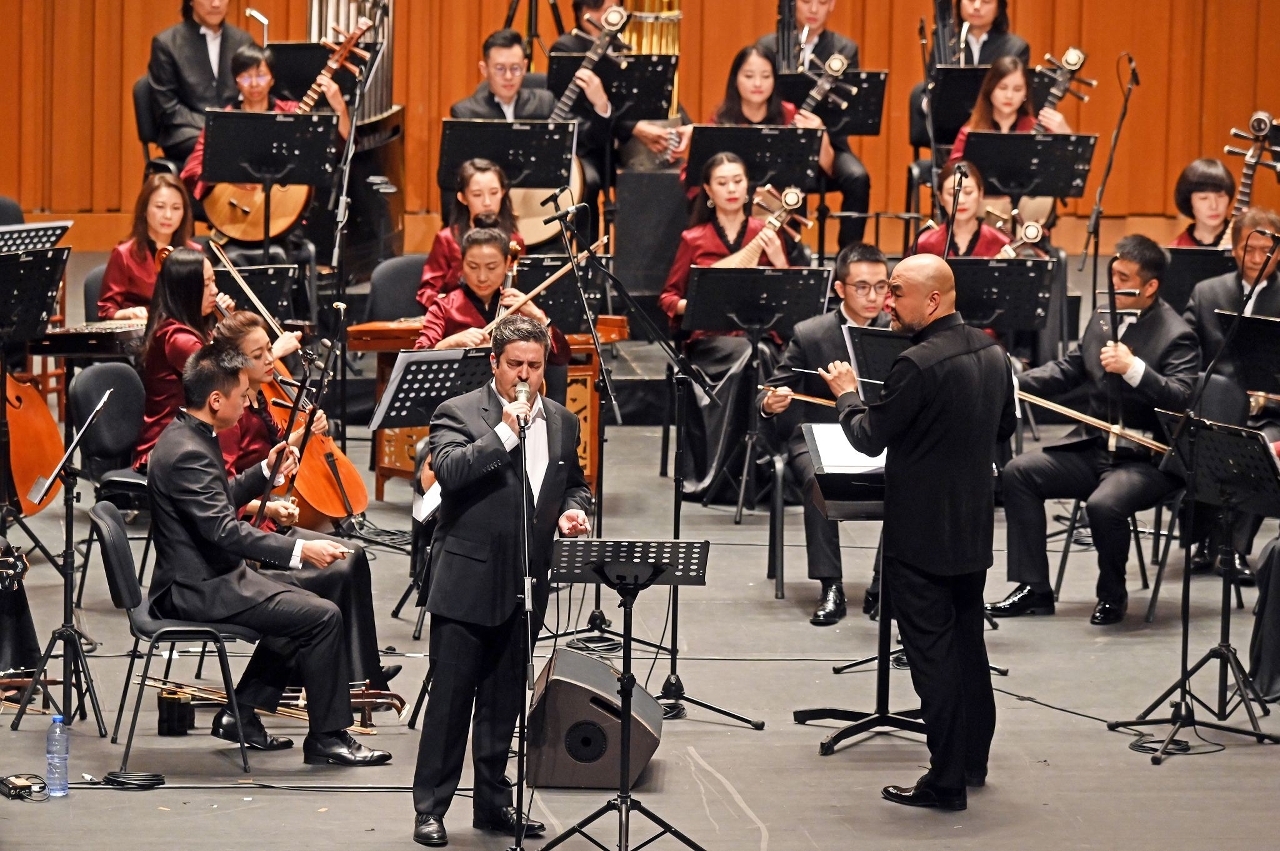 “Traditional Chinese Strings and Fado” Concert by the Macao Chinese Orchestra
“Traditional Chinese Strings and Fado” Concert by the Macao Chinese Orchestra
A number of activities of the “2nd Encounter in Macao – Arts and Cultural Festival between China and Portuguese-speaking Countries”, organized by the Cultural Affairs Bureau, have been carried out smoothly. On 5 July, the “Traditional Chinese Strings and Fado” Concert by the Macao Chinese Orchestra held at the Macao Cultural Centre was well received. The Macao Chinese Orchestra joined hands with Hélder Moutinho, a famous Fado singer from Portugal, to demonstrate a new chapter of cultural and artistic exchanges between China and Portugal through melodious music; in “Traditional Music and Dance Performance from China and Portuguese-speaking Countries”, eight passionate and enthusiastic performances were presented over the past two weekends, at Carmo Fair and Iao Hon Market Garden, respectively, showcasing the charm of music and dance to the community. Both enthralling performances were held in a lively atmosphere and received rounds of applause. In addition, some of the highlight events are still ongoing. The public is welcome to participate and enjoy them.
Taking culture as the link and arts as the carrier, this edition of the “Encounter in Macao – Arts and Cultural Festival between China and Portuguese-speaking Countries” expands the level of cooperation and adds new highlights on the original basis. Featuring an archives exhibition that showcases the historical event of Macao’s return to the Motherland, the first large-scale international book fair, a film festival that features screenings of over 20 outstanding films from China and Portuguese-speaking countries, 8 excellent traditional music and dance performances that are presented in the community, a concert that combines Chinese music and Fado, and an art exhibition that reveals rich creative achievements of China and Portugal, the Festival attracted wide attention and received enthusiastic responses, making full use of Macao’s role as “a base for exchange and cooperation with Chinese culture as the mainstream and the coexistence of different cultures”, highlighting the historical and multi-cultural characteristics of China and Portuguese-speaking countries and strengthening Macao’s role as “a platform for cultural exchanges between China and Portuguese-speaking countries” while promoting people-to-people bonds.
Some of the highlight events are still ongoing. The current exhibition “A Cherished Memory from 1999 ― Archives Exhibition in Celebration of the 20th Anniversary of the Return of Macao to the Motherland” is held at the Archives of Macao, presenting over a hundred precious archives of Macao’s return to the Motherland. The public can visit the exhibition before 27 December. To fully reflect the creative outcomes of local and Portuguese artists, as well as the rich Chinese and Portuguese cultural connotations, the Macao Museum of Art holds the “Annual Arts Exhibition between China and Portuguese-speaking Countries” from 13 July to 4 November, featuring over 90 pieces (sets) of outstanding works since 1980s, deepening artistic and cultural exchanges and cooperation between China and Portuguese-speaking countries by taking the poetic spirit that transcends the boundary of the written language, so as to create vitality for artistic exchanges for residents and tourists.
In addition, a banquet was held to thank all the artists and participants for their support. For more information about the “2nd Encounter in Macao – Arts and Cultural Festival between China and Portuguese-speaking Countries”, please visit the thematic webpage at www.icm.gov.mo/FCP or follow the “IC Art” Page on Facebook or subscribe to WeChat account “ICmacao”.


